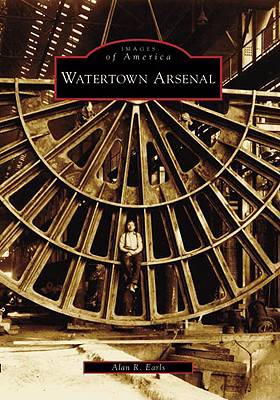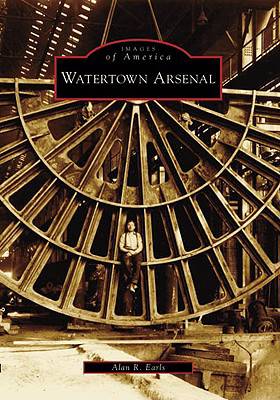
Bedankt voor het vertrouwen het afgelopen jaar! Om jou te bedanken bieden we GRATIS verzending (in België) aan op alles gedurende de hele maand januari.
- Afhalen na 1 uur in een winkel met voorraad
- In januari gratis thuislevering in België
- Ruim aanbod met 7 miljoen producten
Bedankt voor het vertrouwen het afgelopen jaar! Om jou te bedanken bieden we GRATIS verzending (in België) aan op alles gedurende de hele maand januari.
- Afhalen na 1 uur in een winkel met voorraad
- In januari gratis thuislevering in België
- Ruim aanbod met 7 miljoen producten
Zoeken
€ 34,95
+ 69 punten
Uitvoering
Omschrijving
In 1988, the U.S. Base Realignment and Closure Commission announced the closure of the Army Materials Technology Laboratory in Watertown, the last remnant of the famous Watertown Arsenal, which served the country from shortly after the War of 1812, through two world wars and much of the Cold War. Known for its contribution to the development of some of the most powerful artillery ever made, including the famed atomic cannon, the Watertown Arsenal also earned a reputation in other ways. In the early 1900s, it hosted famous efficiency experts, such as Frederick Winslow Taylor. Later it pioneered important advances in materials science and stood as a vital regional institution that employed generations of people from the Boston area. Along the way it hosted many famous visitors, including Franklin D. Roosevelt and Gen. Douglas MacArthur.
Specificaties
Betrokkenen
- Auteur(s):
- Uitgeverij:
Inhoud
- Aantal bladzijden:
- 128
- Taal:
- Engels
- Reeks:
Eigenschappen
- Productcode (EAN):
- 9780738549453
- Verschijningsdatum:
- 18/04/2007
- Uitvoering:
- Paperback
- Formaat:
- Trade paperback (VS)
- Afmetingen:
- 167 mm x 235 mm
- Gewicht:
- 322 g

Alleen bij Standaard Boekhandel
+ 69 punten op je klantenkaart van Standaard Boekhandel
Beoordelingen
We publiceren alleen reviews die voldoen aan de voorwaarden voor reviews. Bekijk onze voorwaarden voor reviews.









